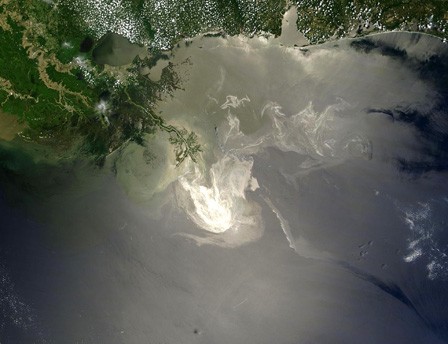Iranian Ship Linked to Houthi Attacks Heads Home Amid Tensions
(Bloomberg) — An Iranian ship that’s been linked to Houthi attacks in the Red Sea is returning home, removing a prominent asset in the area as the Islamic Republic braces...


HOUSTON (Jan. 11, 2011) – In response to the findings of the National Commission on the BP Deepwater Horizon Oil Spill and Offshore Drilling released earlier today, Halliburton released the following statement on its website:
Halliburton (NYSE: HAL) disagrees with the report’s characterization of the February and April foam stability tests related to the cement pumped on the Macondo well, specifically:
In general, the National Commission selectively omitted information provided to it by Halliburton in response to its numerous inquiries. Further, Halliburton has attempted repeatedly to correct the National Commission’s mistaken conclusion that a foam stability test normally requires 48 hours. A representative of the Company testified at the National Commission hearing Nov. 8, 2010 that the test takes as long as necessary for the cement sample to set, which may be less than 48 hours. That same day, we also spoke to a National Commission staff attorney who acknowledged the test can be completed in less than 48 hours, and soon after we sent the Commission industry standards noting that the foam stability test can be completed after curing 24 hours or until the sample is set.
Halliburton does not believe the issues relating to cement testing invalidates BP Exploration’s indemnification obligations as discussed in Halliburton’s Form 10-Q for the quarter ended September 30, 2010. Halliburton’s contract with BP Exploration relating to the Macondo well is available on its website at www.halliburton.com.
Halliburton continues to view safety as critical to its success and is committed to continuously improving performance. Following the National Commission’s report today, Halliburton remains committed to upholding its spirit of cooperation with the National Commission by providing as much information as possible to ensure a complete and thorough review process.
Join the gCaptain Club for curated content, insider opinions, and vibrant community discussions.


Join the 105,982 members that receive our newsletter.
Have a news tip? Let us know.
Access exclusive insights, engage in vibrant discussions, and gain perspectives from our CEO.
Sign Up




Maritime and offshore news trusted by our 105,982 members delivered daily straight to your inbox.



Essential news coupled with the finest maritime content sourced from across the globe.
Sign Up